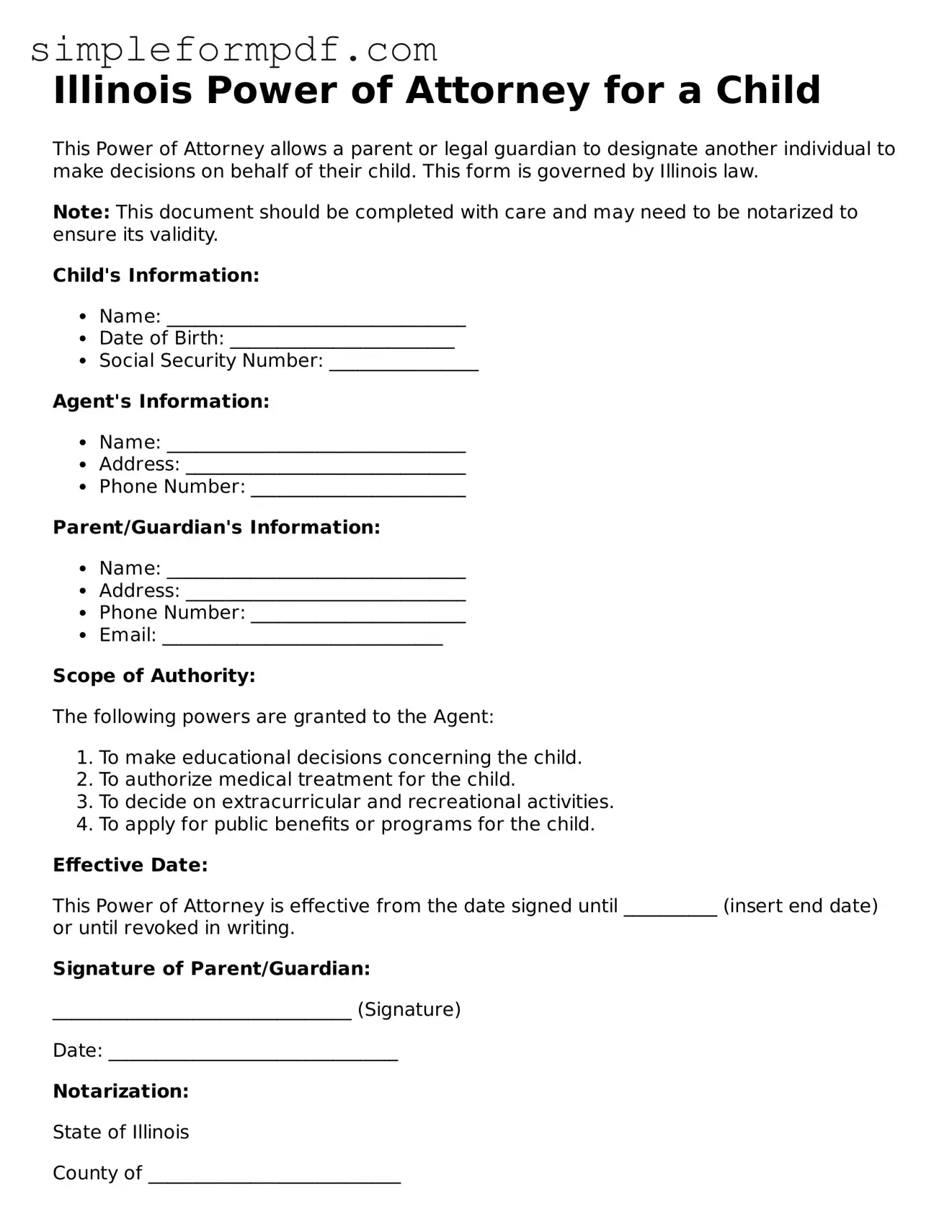Free Power of Attorney for a Child Form for the State of Illinois
The Illinois Power of Attorney for a Child form is a legal document that allows a parent or guardian to designate another adult to make decisions on behalf of their child. This form can be essential in situations where the parent or guardian is unable to care for the child temporarily. Understanding how to properly fill out and utilize this form is crucial for ensuring the child's well-being and care.
To get started on filling out the form, click the button below.
Launch Editor

Free Power of Attorney for a Child Form for the State of Illinois
Launch Editor
Need instant form completion?
Finish Power of Attorney for a Child online in just a few minutes.
Launch Editor
or
Download PDF
